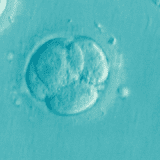Are you experiencing discomforts during your pregnancy? Don’t worry, we’ve got you covered! In this article, we will explore seven natural remedies that can help alleviate common pregnancy discomforts. These remedies are safe, effective, and can provide relief without the need for medication or invasive procedures. So, let’s dive in and discover how you can make your pregnancy journey a more comfortable and enjoyable one.
Morning Sickness
Morning sickness is a common discomfort experienced by many pregnant women. It is characterized by nausea and vomiting, usually occurring in the early stages of pregnancy. While it can be unpleasant, there are several natural remedies that can help manage morning sickness and reduce nausea.
One effective remedy is ginger. Ginger has been used for centuries to alleviate nausea and has shown promising results in reducing morning sickness symptoms. You can try consuming ginger in various forms, such as ginger tea, ginger candies, or ginger capsules. Another option is to add fresh ginger to your meals or snacks.
Acupressure is another natural remedy that can provide relief from morning sickness. There is a specific pressure point on your wrist called the P6 point, also known as the Nei-Kuan point, which is believed to help reduce nausea. Applying pressure to this point using acupressure bands or simply massaging the area with your fingers can help alleviate morning sickness symptoms.
It’s important to stay hydrated during pregnancy, especially if you are experiencing morning sickness. Drinking plenty of fluids can help prevent dehydration and may also help reduce nausea. Sipping on clear liquids such as water, herbal teas, or electrolyte-rich drinks can be beneficial. Avoiding large meals and opting for smaller, more frequent meals throughout the day can also help manage morning sickness.
In addition to these remedies, certain lifestyle changes can also make a difference. Getting plenty of rest, avoiding triggers that worsen nausea (such as strong smells or certain foods), and practicing relaxation techniques like deep breathing or meditation can all contribute to managing morning sickness.
Remember, every pregnancy is different, and what works for one person may not work for another. It’s important to consult with your healthcare provider before trying any new remedies or making significant changes to your diet or lifestyle. They can provide personalized advice and guidance based on your specific needs and medical history.
Back Pain
Back pain is a common discomfort experienced by many pregnant women. The added weight of the growing baby, changes in posture, and hormonal changes can contribute to back pain during pregnancy. However, there are natural techniques and remedies that can help alleviate this discomfort and improve overall comfort.
One effective way to relieve back pain during pregnancy is through exercise and stretching. Gentle exercises and stretching routines specifically designed for pregnant women can help strengthen the muscles that support the back and reduce pain. Yoga and Pilates are particularly beneficial as they focus on core strength and flexibility, which can alleviate back pain.
Applying warm compresses to the back can also provide relief from pregnancy-related back pain. The warmth helps to relax the muscles and reduce tension. You can use a heating pad or a warm towel to apply gentle heat to the affected area.
In addition to these techniques, maintaining proper posture is crucial for relieving back pain. Slouching or hunching can put additional strain on the back muscles, leading to discomfort. It is important to sit and stand with a straight back, keeping the shoulders relaxed and the spine aligned.
By incorporating these natural techniques and remedies into your daily routine, you can effectively alleviate back pain and improve overall comfort during pregnancy.
Exercise and Stretching
Exercise and stretching are essential for relieving back pain during pregnancy. By incorporating specific exercises and stretching routines into your daily routine, you can alleviate discomfort and improve your overall comfort. These activities help to strengthen the muscles that support your back, reducing the strain and pressure on your spine.
One effective exercise for back pain relief during pregnancy is prenatal yoga. Yoga poses are designed to stretch and strengthen the muscles while promoting relaxation and stress relief. It also helps to improve flexibility and posture, which can alleviate back pain. Similarly, Pilates exercises can also be beneficial as they focus on strengthening the core muscles, including the abdominal and back muscles.
Another way to alleviate back pain is by applying warm compresses to the affected area. The heat from the compress helps to relax the muscles and increase blood flow, providing relief from pregnancy-related back pain. You can use a warm towel or a heating pad for this purpose, but make sure to use a moderate temperature and avoid applying heat directly to your belly.
In addition to exercise and warm compresses, maintaining proper posture is crucial for back pain relief during pregnancy. Good posture helps to distribute the weight evenly and reduces the strain on your back. Make sure to stand up straight, with your shoulders back and relaxed. Avoid slouching or hunching over, as this can worsen back pain. You can also use a pregnancy support belt or a cushion to help maintain proper posture throughout the day.
Remember to consult with your healthcare provider before starting any exercise or stretching routine during pregnancy. They can provide personalized recommendations based on your specific needs and medical history. With the right exercises, stretching, and posture, you can alleviate back pain and enjoy a more comfortable pregnancy.
Yoga and Pilates
Yoga and Pilates are two popular forms of exercise that can provide numerous benefits during pregnancy. These practices focus on strengthening the core muscles, improving flexibility, and promoting overall well-being. By incorporating yoga and Pilates into your routine, you can alleviate back pain and discomfort commonly experienced during pregnancy.
One of the main advantages of practicing yoga and Pilates is that they help strengthen the core muscles, including the abdominal and back muscles. As your baby grows, the additional weight can strain these muscles, leading to back pain. By strengthening your core, you can better support your spine and alleviate some of the pressure on your back.
In addition to strengthening the core, yoga and Pilates also emphasize stretching and flexibility. These exercises can help improve your posture and relieve tension in the muscles. By practicing specific poses and movements, you can release tightness in the back and promote better alignment, reducing the likelihood of experiencing back pain.
Moreover, yoga and Pilates provide a low-impact form of exercise that is gentle on the joints. This is particularly beneficial during pregnancy when your body undergoes various changes and becomes more susceptible to injury. With these practices, you can engage in physical activity without putting excessive strain on your body.
Furthermore, yoga and Pilates promote relaxation and stress reduction. Pregnancy can be a challenging and emotional time, and these exercises offer a peaceful and calm environment to connect with your body and your baby. The deep breathing techniques and mindfulness practiced in yoga and Pilates can help you manage stress and anxiety, promoting a sense of well-being.
To incorporate yoga and Pilates into your pregnancy routine, it is important to consult with a qualified instructor who specializes in prenatal exercises. They can guide you through modified poses and movements that are safe and suitable for your changing body. Additionally, it is crucial to listen to your body and make modifications as needed, ensuring that you do not overexert yourself.
In conclusion, practicing yoga and Pilates during pregnancy can provide numerous benefits, including strengthening the core muscles, improving flexibility, promoting relaxation, and reducing back pain. By incorporating these exercises into your routine and working with a qualified instructor, you can support your overall well-being and enhance your pregnancy experience.
Warm Compresses
Warm Compresses
During pregnancy, many women experience back pain as their bodies undergo significant changes. One effective natural remedy to alleviate pregnancy-related back pain is the application of warm compresses. Applying heat to the affected area can help relax the muscles, reduce inflammation, and provide soothing relief.
To create a warm compress, start by soaking a clean towel in warm water. Make sure the water is comfortably warm, but not too hot. Wring out any excess water from the towel and fold it into a manageable size. Place the warm towel on the area of your back that is experiencing pain or discomfort.
You can also enhance the effectiveness of the warm compress by adding a few drops of essential oils known for their pain-relieving properties, such as lavender or chamomile. These oils can provide additional relaxation and promote a sense of calm.
Leave the warm compress on your back for about 15-20 minutes, allowing the heat to penetrate the muscles and provide relief. You can repeat this process multiple times throughout the day as needed.
Remember to always test the temperature of the compress on a small area of your skin before applying it to your entire back. If the heat feels too intense or uncomfortable, adjust the temperature accordingly.
By incorporating warm compresses into your daily routine, you can effectively manage pregnancy-related back pain and enjoy a more comfortable pregnancy experience.
Proper Posture
Proper posture is crucial for pregnant women to alleviate back pain and promote overall comfort during pregnancy. Maintaining good posture not only helps reduce strain on the back and spine but also improves circulation and supports the growing belly.
One way to ensure proper posture is by sitting and standing up straight. When sitting, it is important to keep your back straight and supported, with both feet flat on the ground. Avoid slouching or hunching over, as this can put unnecessary pressure on the back and lead to discomfort. Consider using a cushion or a lumbar roll to support the natural curve of your lower back.
When standing, distribute your weight evenly on both feet and avoid locking your knees. Keep your shoulders relaxed and pulled back, and engage your core muscles to maintain stability. It may also be helpful to wear supportive shoes that provide cushioning and arch support.
In addition to sitting and standing with proper posture, it is important to practice good body mechanics when lifting or carrying objects. Bend at the knees and use your leg muscles to lift, rather than straining your back. Avoid twisting your body while lifting and remember to take breaks and rest when needed.
Furthermore, incorporating gentle exercises and stretches into your daily routine can help improve posture and reduce back pain. Consult with your healthcare provider or a prenatal fitness specialist to learn specific exercises that are safe and beneficial during pregnancy. These exercises can strengthen the muscles that support your back and promote better posture.
Overall, understanding the importance of maintaining good posture during pregnancy is essential for alleviating back pain and promoting a more comfortable experience. By practicing proper posture in various activities and incorporating exercises and stretches, you can support your body’s changing needs and enjoy a healthier pregnancy.
Heartburn
Heartburn is a common discomfort experienced by many pregnant women. It is characterized by a burning sensation in the chest and throat, often accompanied by acid reflux. Fortunately, there are several natural remedies and lifestyle changes that can help manage and reduce heartburn symptoms during pregnancy.
Dietary Adjustments: One of the most effective ways to manage heartburn is to make certain dietary adjustments. Avoiding spicy and acidic foods, as well as fatty and fried foods, can help reduce the occurrence of heartburn. Instead, opt for smaller, more frequent meals and focus on consuming foods that are high in fiber and low in fat. Additionally, chewing gum after meals can help increase saliva production, which can neutralize stomach acid and alleviate heartburn symptoms.
Herbal Teas: Certain herbal teas have been found to be soothing and relieving for heartburn discomfort during pregnancy. Chamomile tea, for example, has anti-inflammatory properties and can help calm the digestive system. Peppermint tea is another great option, as it can help relax the muscles of the esophagus and reduce acid reflux. However, it’s important to note that not all herbal teas are safe during pregnancy, so it’s best to consult with your healthcare provider before incorporating them into your routine.
Lifestyle Changes: In addition to dietary adjustments and herbal teas, there are several lifestyle changes that can help manage heartburn. Avoid lying down immediately after eating and instead try to remain upright for at least an hour. Elevating the head of your bed can also help prevent acid reflux during sleep. Wearing loose-fitting clothing and avoiding tight belts or waistbands can reduce pressure on the stomach and minimize heartburn. Lastly, managing stress levels through relaxation techniques, such as deep breathing exercises or meditation, can also help reduce the frequency and severity of heartburn episodes.
By exploring these natural remedies and implementing lifestyle changes, you can effectively manage heartburn and acid reflux during pregnancy. Remember to consult with your healthcare provider before trying any new remedies or making significant changes to your diet or lifestyle. With the right approach, you can find relief and enjoy a more comfortable pregnancy.
Dietary Adjustments
Dietary adjustments play a crucial role in managing heartburn symptoms during pregnancy. By avoiding certain foods and incorporating others into your diet, you can significantly reduce the discomfort caused by heartburn. Here are some dietary recommendations to help alleviate heartburn:
- Avoid spicy and greasy foods, as they can trigger acid reflux and worsen heartburn symptoms.
- Steer clear of citrus fruits and juices, such as oranges and grapefruits, as they are acidic and can irritate the esophagus.
- Avoid chocolate, caffeine, and carbonated beverages, as they can relax the lower esophageal sphincter and allow stomach acid to flow back up into the esophagus.
- Limit your intake of fatty foods, such as fried foods and high-fat meats, as they can delay stomach emptying and increase the risk of acid reflux.
- Include more fiber-rich foods in your diet, such as whole grains, fruits, and vegetables. Fiber helps regulate digestion and can prevent heartburn.
- Opt for lean proteins, such as poultry, fish, and beans, instead of fatty meats. Lean proteins are easier to digest and less likely to trigger heartburn.
- Drink plenty of water throughout the day to stay hydrated and aid digestion.
It’s important to listen to your body and pay attention to how different foods affect your heartburn symptoms. Keep a food diary to track your meals and identify any triggers. By making these dietary adjustments, you can find relief from heartburn and enjoy a more comfortable pregnancy.
Herbal Teas
Herbal teas can be a soothing and natural way to alleviate heartburn discomfort during pregnancy. These teas are made from various herbs that have properties known to help reduce acid reflux and calm the digestive system. By incorporating herbal teas into your daily routine, you can find relief from the burning sensation and discomfort caused by heartburn.
One popular herbal tea for heartburn relief is chamomile tea. Chamomile has anti-inflammatory properties that can help soothe the lining of the esophagus and reduce the production of stomach acid. Sipping on a warm cup of chamomile tea after meals can provide relief from heartburn symptoms.
Ginger tea is another excellent option for managing heartburn during pregnancy. Ginger has long been used as a natural remedy for digestive issues, including heartburn. It helps to neutralize stomach acid and reduce inflammation in the esophagus. Drinking ginger tea before or after meals can help prevent heartburn and ease any discomfort you may be experiencing.
Peppermint tea is known for its cooling and soothing properties, making it a great choice for relieving heartburn. Peppermint can help relax the muscles of the gastrointestinal tract, allowing food to pass through more easily and reducing the likelihood of acid reflux. However, it’s important to note that peppermint may also relax the lower esophageal sphincter, which can worsen heartburn for some individuals. If you find that peppermint tea exacerbates your symptoms, it’s best to avoid it.
When choosing herbal teas for heartburn relief, it’s essential to opt for caffeine-free varieties. Caffeine can relax the lower esophageal sphincter, leading to increased acid reflux. Additionally, it’s a good idea to consult with your healthcare provider before incorporating herbal teas into your routine, especially if you have any pre-existing medical conditions or are taking medications.
Incorporating herbal teas into your daily routine can provide a natural and gentle way to alleviate heartburn discomfort during pregnancy. However, it’s important to remember that everyone’s body is different, and what works for one person may not work for another. It’s always best to listen to your body and consult with your healthcare provider for personalized advice and guidance.
Frequently Asked Questions
- Q: What are some natural remedies for morning sickness?
A: Some natural remedies for morning sickness include ginger, peppermint, and acupressure wristbands. Ginger can be consumed in various forms such as ginger tea or ginger candies to help reduce nausea. Peppermint can be consumed as a tea or used as an essential oil for aromatherapy. Acupressure wristbands apply pressure on specific points on the wrist that may help alleviate nausea.
- Q: How can I relieve back pain during pregnancy?
A: There are several natural techniques and remedies to relieve back pain during pregnancy. Regular exercise and stretching can help strengthen the muscles supporting your back and improve flexibility. Yoga and Pilates are particularly beneficial for strengthening the core and reducing back pain. Applying warm compresses to the back can also provide relief. Additionally, maintaining proper posture throughout the day is important in alleviating back pain.
- Q: What lifestyle changes can help manage heartburn during pregnancy?
A: Making dietary adjustments can help manage heartburn during pregnancy. Avoiding spicy, greasy, and acidic foods can reduce the frequency and severity of heartburn symptoms. It is also recommended to eat smaller, more frequent meals and avoid lying down immediately after eating. Elevating the head while sleeping can also help prevent acid reflux.
- Q: Are there any herbal teas that can soothe heartburn discomfort?
A: Yes, there are herbal teas that can help soothe heartburn discomfort during pregnancy. Chamomile tea and ginger tea are known for their calming and digestive properties. Peppermint tea may also provide relief, but it should be consumed in moderation as excessive peppermint can relax the muscles of the esophagus and worsen heartburn.











